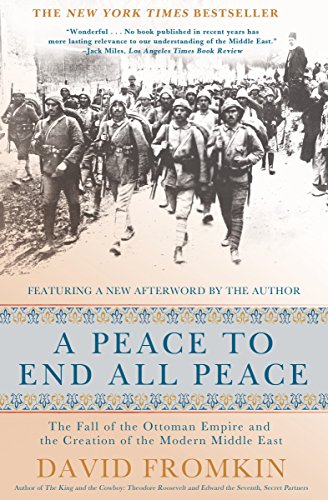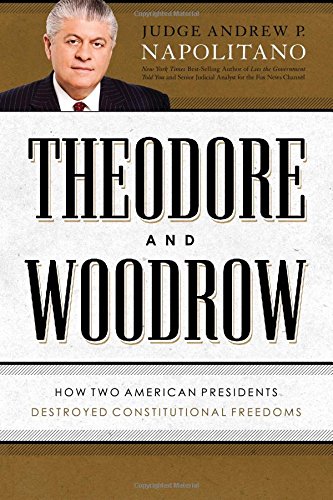We tend to think of history as a collection of abstract facts that have no bearing on the “real world,” but everything connects across the timeline. Big, world-changing events don’t just change things when they happen; they send out shock waves that reverberate into the present. Like William Faulkner said, “The past is never dead. It’s not even past.”
10 Espionage And Sedition Acts
When Woodrow Wilson declared war in 1917, he gave a speech before congress warning of the disloyalty of many Americans. To deal with those who wanted to undermine the war effort, Wilson advocated “a firm hand of repression.”
Thus, Wilson enacted the Espionage and Sedition Acts to prosecute people who threatened “national defense.” The acts granted the government the power to censor newspapers and movies as well as jail those who resisted the draft and made it a federal crime to slander the Constitution. The government imprisoned thousands during Wilson’s administration.
 A Peace to End All Pea...
Best Price: $4.51
Buy New $14.19
(as of 11:15 UTC - Details)
A Peace to End All Pea...
Best Price: $4.51
Buy New $14.19
(as of 11:15 UTC - Details)
Cooler heads never really prevailed. By 1919, the Supreme Court decided that the laws were not in violation of the First Amendment and freedom of speech, and their use continues to this day. They were most recently employed to imprison Chelsea (formerly Bradley) Manning, and they would be used to put Edward Snowden behind bars if he were to be captured.
9 Iron Harvest
Current Prices on popular forms of Gold Bullion
Farmers in France, Germany, and Belgium are still at risk of becoming casualties due to the amount of munitions launched during World War I. When they plow their fields, they’re still dredging up tons of unexploded weaponry, and sometimes the bombs go off. Entire teams are dedicated to finding these weapons and disarming them before that happens. People like Michael Colling even have to wear gas masks, as if the war never ended.
In 2012, Belgium uncovered 105 tons of munitions, including poisonous gas. They call the haul, like a macabre crop grown in Hell, the “iron harvest.” In 2004, one site in Germany yielded 3,000 unexploded bombs. Those hauls are only a drop in the bucket. During World War, I, 1.4 billion shells were launched. People still occasionally die. The Great War is still claiming lives.
 Theodore and Woodrow: ...
Best Price: $2.00
Buy New $9.25
(as of 12:15 UTC - Details)
Theodore and Woodrow: ...
Best Price: $2.00
Buy New $9.25
(as of 12:15 UTC - Details)
8 Champagne
You may have, at some point, heard a snob proclaim, “Champagne is only champagne if it comes from the Champagne region in France.” Here’s why:
The French regions that could produce champagne were effectively destroyed during World War I. To ensure that champagne would remain exclusively French, a clause was added to the Treaty of Versailles, stipulating that the entire world wouldn’t be able to call any sparkling wine “champagne.” The countries that ratified the Treaty of Versailles agreed.
This stipulation remains at work today, though not completely as intended. If you’re in the US, you may have noticed that a lot of cheap wine is still called “champagne.” This stuff is made in the United States. In the US, you can a get terrible hangover from “champagne” instead of “sparkling wine” because the Senate never ratified the Treaty of Versailles. The US remains technically exempt from the clause.





